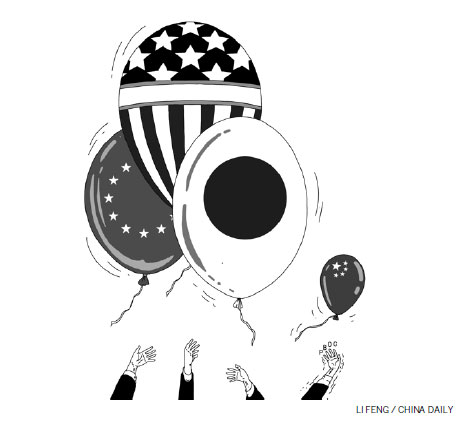
In economic policy, as in most other areas, actions speak louder than words. By cutting its benchmark policy interest rates, the People's Bank of China, the central bank, has underscored the tactical focus of the government's stabilization policy, which aims to put a floor of around 7 percent on GDP growth.
Achieving this goal will be no small feat. China's economy is facing structural headwinds arising from the shift to a new model of services- and consumer-led growth, and cyclical pressure, as a tough global environment puts downward pressure on the old export and investment-led model.
The cyclical challenges, in particular, are proving to be more severe than anticipated. Though exports have declined considerably from their pre-crisis peak of 35 percent of GDP, they continue to account for about 24 percent, leaving China exposed to the global growth cycle - especially to markets in the developed world, where demand is exceptionally weak.
Indeed, 42 percent of Chinese exports go to Europe, the United States, and Japan - three economies that are flirting with secular stagnation. And Europe, China's largest export market, has struggled the most.
Given that development strategies begin to fail when economies reach middle-income status - a threshold that China is rapidly approaching - China cannot afford to allow mounting cyclical risks to undermine its structural transformation. Modern history shows that the best way for a developing country to become ensnared in the dreaded "middle-income trap" is to cling to its old model for too long.
The fact is that only structural transformation can lift a middle-income developing country to high-income developed status. Fortunately, China's leaders recognize this, and are committed to achieving it.
President Xi Jinping has been spearheading the effort to press ahead with reform and rebalancing. A year ago, at the Third Plenary Session of the 18th Central Committee of the Communist Party of China, Xi and his team created the country's most ambitious economic-reform agenda in 35 years. This, together with the 12th Five-Year Plan? (2011-15), highlights the authorities' commitment to bolstering the services sector and domestic consumption.